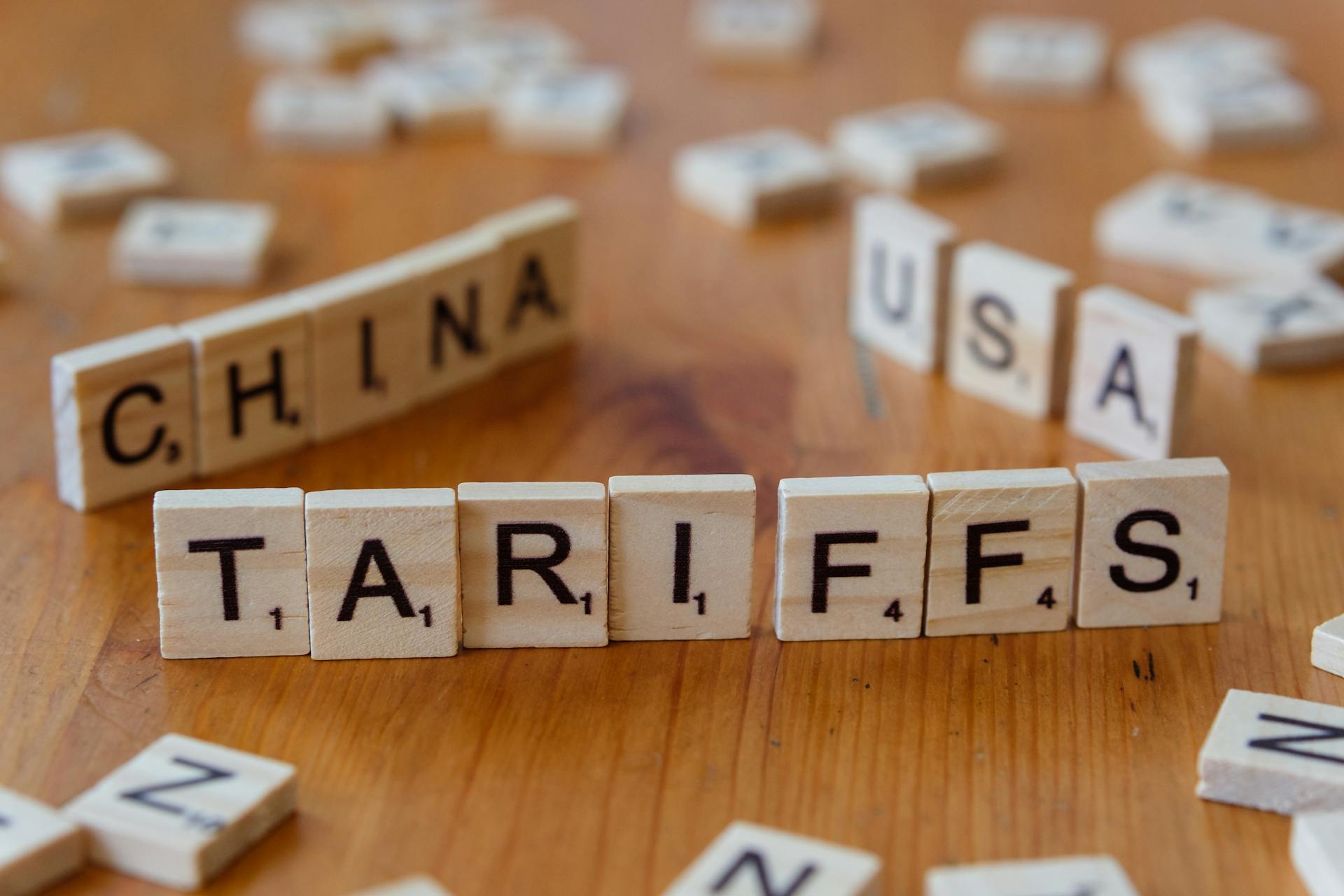
The recent tariffs imposed by the Trump administration have had a significant impact on Walmart's business, with the retail giant facing increased costs and reduced profit margins. Walmart has been forced to absorb the additional costs of the tariffs, which has resulted in a decline in the company's profit margins.
Walmart's decision to absorb the costs of the tariffs has been driven by its commitment to keeping prices low for its customers. The company has a long history of prioritizing affordability and convenience, and it has taken steps to mitigate the impact of the tariffs on its customers.
As a result of the tariffs, Walmart's prices for certain products have increased, affecting consumers who rely on the retailer for their everyday needs.
Related reading: Donald Trump Threatens Tariffs against European Union.
Walmart's Tariff Concerns
Walmart's CFO, John David Rainey, has expressed concerns that President-elect Trump's proposed tariffs could lead to higher prices for Walmart shoppers.
Tariffs are going to be inflationary, Rainey warned, and consumers will likely pay more for items that these tariffs are applied to.
About two-thirds of the items Walmart sells are made, grown, or assembled in the U.S., but the company is not immune to the effects of tariffs.
The National Retail Federation estimated that Trump's proposed tariffs could cost American consumers between $46 billion and $78 billion in spending power annually.
Six categories of goods would be impacted, including apparel, toys, furniture, household appliances, footwear, and travel goods.
Walmart's CEO, Doug McMillon, said the company would try to work with suppliers and its own private brand assortment to bring down prices for customers.
However, Rainey acknowledged that prices may still go up for consumers in some cases.
Here are some products that could be affected by tariffs:
- Apparel
- Toys
- Furniture
- Household appliances
- Footwear
- Travel goods
These products account for a significant portion of Walmart's inventory, and the company may need to raise prices to offset the costs of tariffs.
It's worth noting that Walmart has been broadening its base of suppliers for imported goods since the last time Trump was president, but the company still sources a significant amount of products from outside the U.S.
The company's CFO, Rainey, said it's too hard to predict which products would be affected and by how much, but the company is preparing for the possibility of higher prices.
Trump's Tariff Impact
Tariffs are going to be inflationary, which means they will lead to higher prices for consumers. Walmart CFO John David Rainey warned that President-elect Trump's proposed tariffs could lead to higher prices for Walmart shoppers.
About two-thirds of the items Walmart sells are made, grown, or assembled in the US. However, the company is not immune to the effects of tariffs, and prices may still go up for consumers.
The National Retail Federation estimated that Trump's proposed new tariffs could cost American consumers between $46 billion and $78 billion in spending power annually. Six categories of goods would be impacted, including apparel, toys, furniture, household appliances, footwear, and travel goods.
Walmart CFO John David Rainey said the company will work with suppliers and its own private brand assortment to try to bring down prices for customers. However, he also acknowledged that prices may go up in some cases.
Here are some examples of categories that could be affected by tariffs:
- Apparel
- Toys
- Furniture
- Household appliances
- Footwear
- Travel goods
Other companies, such as AutoZone and Stanley Black & Decker, have also warned that tariffs could lead to higher prices for consumers.
Tariff Effects on Walmart
Walmart has expressed concerns about the potential effects of President-elect Trump's proposed tariffs on its customers. Tariffs are going to be inflationary, according to Walmart CFO John David Rainey.
Two-thirds of the items Walmart sells are made, grown, or assembled in the U.S., but the company is still not immune to the effects of tariffs. The company is concerned that significantly increased tariffs could lead to increased costs for its customers.
Walmart's CFO, John David Rainey, said that the company will try to work with suppliers and its own private brand assortment to bring down prices for customers. However, he also acknowledged that prices may go up for consumers in some cases.
A universal 10-20% tariff would be imposed on imports from all foreign countries, and an additional 60-100% tariff would be imposed on imports specifically from China. This could lead to higher prices for consumers, especially for low-income families.
Consider reading: Why Does Trump Want to Tariff Canada
The National Retail Federation estimated that Trump's proposed tariffs could cost American consumers between $46 billion and $78 billion in spending power annually. Six categories of goods would be impacted, including apparel, toys, furniture, household appliances, footwear, and travel goods.
Some U.S. manufacturers may benefit from the tariffs, but the gains for U.S. producers and the Treasury would not outweigh the overall losses to consumers, according to the trade group.
Analysis and Opinion
The Walmart tariff situation is a complex one, and it's interesting to see how it affects the retail giant. Walmart has been vocal about the negative impact of tariffs on its business, with CEO Doug McMillon stating that they will pass on the costs to customers.
Tariffs have already had a significant impact on Walmart's sales, with a 2% decline in sales in the US in the third quarter of 2018. This is likely due to the increased costs of imported goods.
Walmart has been diversifying its supply chain to reduce its reliance on Chinese imports. In 2018, it announced plans to invest $1.5 billion in e-commerce and logistics in the US and other countries.
The company's efforts to reduce its dependence on China have been paying off, with US imports accounting for 44% of Walmart's total imports in 2019, up from 38% in 2017.
Suggestion: Current Us Tarrifs
Sources
- https://www.foxbusiness.com/lifestyle/walmart-warns-higher-prices-trump-implements-proposed-tariffs
- https://www.marketscreener.com/quote/stock/WALMART-INC-4841/news/Trump-meets-with-US-retailers-to-discuss-tariffs-49667662/
- https://www.businessinsider.com/walmart-prices-increase-likely-trump-tariffs-cfo-2024-11
- https://truthout.org/articles/walmart-and-other-companies-say-trumps-tariffs-will-obviously-raise-prices/
- https://www.wdbj7.com/2024/11/20/walmart-lowes-may-raise-prices-if-trumps-tariff-plans-take-effect-cfos-say/
Featured Images: pexels.com


